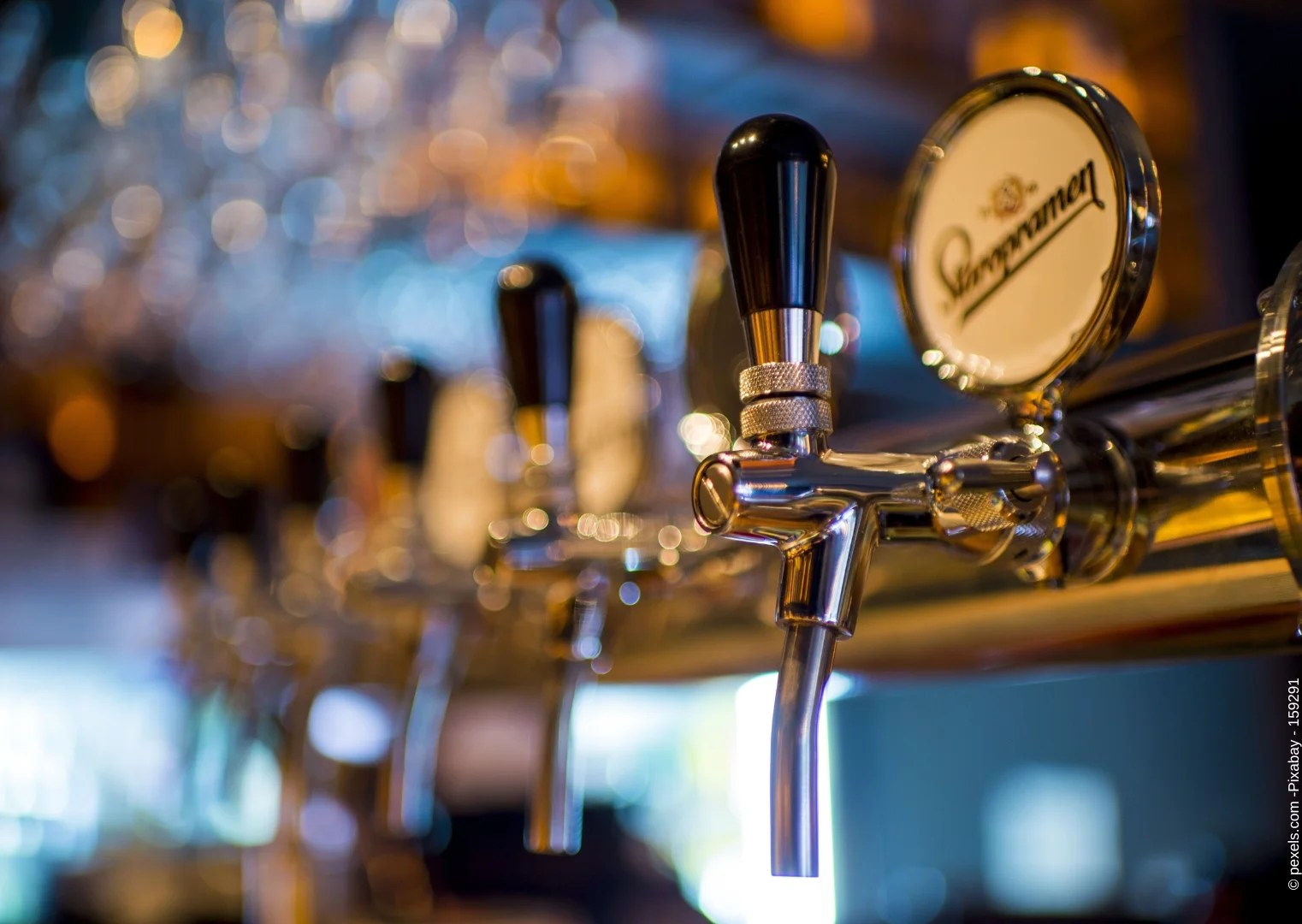German Beer Facts

The German-speaking regions of central Europe have a long and rich history, and are famous for many many things: precision engineering, cars, the Autobahn, music, picturesque landscapes, fairytale castles, and romantic medieval towns and villages. But above all else, Germany is associated with beer. In Germany, beer is not just a beverage – it’s a cultural institution, steeped in history and tradition. With over a thousand years of brewing practice and expertise, Germany has firmly established itself as one of the world’s great beer homelands. Here we give you a brief tour of the fascinating world of Germany’s beer, and explore its landscape in fun facts, history, beer brands and types … and finish with an introduction to the world’s greatest festival of beer consumption, Oktoberfest.
The economic facts of German beer.
Germany boasts a staggering number of breweries, which are witness to centuries of deep-rooted beer culture. With around 1,500 breweries spread across the country (half of them in Bavaria), Germany holds the record for the highest number of breweries in Europe. This extensive network of breweries contributes significantly to the German economy, generating substantial revenue and providing employment for a large number of people: tens of thousands working directly for the breweries, and hundreds of thousands more working for the hospitality sector that depends on the beer market. Beer is currently an €8.5 billion German industry, and contributes about 1.5% of GDP of Europe’s largest economy.
From small-scale, local family-owned operations to large-scale commercial breweries, the diverse range of breweries caters to a variety of tastes for “liquid bread” – from bottom-fermented light lager beer to more traditional top-fermented ales and wheat beer.
The history of German beer.
The history of beer in this part of the world dates back to the earliest days of German culture. Thousands of years, in other words. It was during the Middle Ages, however, that brewing began to take shape as a distinct cultural and economic activity. Monasteries played a pivotal role in refining brewing techniques in Germany, contributing to the development of unique and lasting characteristics.
A pivotal moment in Germany’s beer history was the formulation of the Reinheitsgebot, the famous German Beer Purity Law of 1516. The world’s oldest continuously existing food standards regulation, the Beer Purity Law, initially enacted in the Duchy of Bavaria and later adopted by other German states, formally stated the ingredients that could be used in brewing: water, malt, and hops. This decree, which excluded yeast due to its unknown role at the time, laid the foundations for the reputation for quality and consistency that Germany’s beer continues to enjoy today.
Germany’s beer is renowned for its diversity, boasting a wide range of beer styles. Perhaps the definitive beer drinking experience in the country is its famous cold, pale lager beers. Lager (which comes from the German term for cold storage) is characterised by its crisp and refreshing taste. It encompasses various sub-styles, each with its unique characteristics, such as Pilsner, Helles, and Märzen.
Bavaria.
Bavaria, the great alpine land in southern Germany, holds a special place in the country’s brewing legacy. Bavarian beers, particularly the rich “Dunkel” malt beer and the lighter Helles lager, are justly celebrated for their smoothness and balanced flavors. These traditional styles are a reflection of the region’s brewing expertise and adherence to time-honoured methods. And Bavaria’s capital, Munich, is of course the home town of the Reinheitsgebot, the Hofbräu brewery and its home address, the world’s greatest beer hall, the Hofbräuhaus – and, last but not least, Oktoberfest.
Oktoberfest.
No discussion of German beer is complete without mentioning Oktoberfest, the world’s largest beer festival held every year in late September/early October in Munich. This iconic event showcases Germany’s beer culture on a grand scale, attracting millions of visitors from around the globe. Oktoberfest is a vibrant amalgamation of traditional music, food, and, of course, copious amounts of specially brewed beer.
During the 16-day festival, attendees have the opportunity to sample an impressive selection of German beers, including those crafted exclusively for the event. Traditional beer tents offer an authentic atmosphere where visitors can raise a glass to Bavarian heritage. It’s estimated that around 7 million liters of beer are consumed during Oktoberfest, underscoring the immense popularity of German beer on a global scale.
The success of the beer on tap at Oktoberfest can be attributed to the meticulous brewing process and the use of high-quality ingredients. The process typically involves mashing malted barley to extract fermentable sugars, boiling the mixture with hops for flavor and aroma, and fermenting the resulting wort with yeast.
Yeast, a crucial – and, for centuries, unknown – element in brewing, plays a pivotal role in determining the final flavor profile of the beer. Different yeast strains contribute unique flavors, ranging from fruity and estery to clean and crisp. German brewers have honed their skills in yeast management, ensuring consistency and authenticity in their beers.
In conclusion, German beer stands as a testament to the country’s rich brewing legacy, where tradition and innovation intertwine seamlessly. With a multitude of breweries, a deep-rooted history, and a diverse range of styles, Germany remains a global powerhouse in the world of beer. The Reinheitsgebot and the Oktoberfest celebration serve as cornerstones of German brewing culture, reminding us of the enduring allure of this centuries-old craft.
Whether you’re sipping a Bavarian Dunkel in a Munich beer garden or enjoying a traditional Altbier in a wood-panelled beerhall, German beer continues to captivate visitors and locals alike. As you raise your glass to sample the flavours and aromas that define German brewing, take a moment to appreciate the centuries of dedication and passion that have made German beer a cornerstone of global beer culture.
